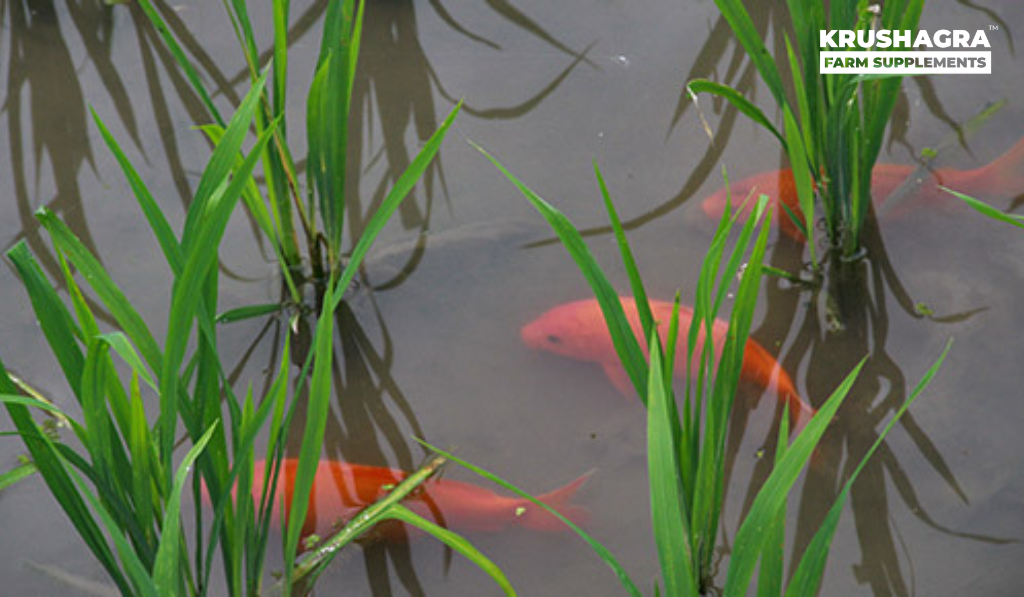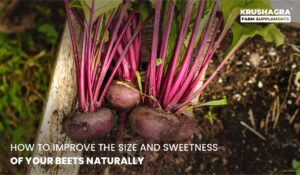Introduction:
Rice-fish farming, a centuries-old agricultural practice, offers a sustainable solution to the challenges facing modern agriculture. By integrating rice cultivation with fish farming in the same ecosystem, this innovative approach promotes ecological balance, enhances productivity, and contributes to food security.
In this blog, we delve into the intricacies of rice-fish farming, exploring its environmental benefits, economic advantages, and potential for widespread adoption.
Understanding Rice-Fish Farming:
Rice-fish farming involves the simultaneous cultivation of rice and fish in flooded or waterlogged fields. The practice harnesses the natural synergies between rice plants and fish, creating a mutually beneficial ecosystem.
Fish provide natural pest control by consuming insect larvae and weeds, while their waste serves as organic fertilizer for rice plants. In return, the rice paddies offer fish shelter and nutrient-rich foraging grounds.
Environmental Sustainability:
One of the most significant advantages of rice-fish farming is its positive impact on the environment. Unlike traditional rice cultivation methods, which often involve the heavy use of chemical fertilizers and pesticides, rice-fish systems promote natural pest management and nutrient cycling.
By reducing the reliance on synthetic inputs, rice-fish farming minimizes soil and water pollution, conserves biodiversity, and mitigates greenhouse gas emissions.
Methane Mitigation:
Conventional rice farming is a significant source of methane, a potent greenhouse gas that contributes to global warming. The anaerobic conditions in flooded rice paddies facilitate methane production by anaerobic bacteria. However, the presence of fish in rice-fish farming systems disrupts these anaerobic conditions, reducing methane emissions. Fish consume organic matter and oxygenate the water, creating aerobic conditions that inhibit methane-producing bacteria.
Economic Viability:
In addition to its environmental benefits, rice-fish farming offers substantial economic advantages for farmers. By diversifying their income streams, farmers can reduce their dependence on a single crop and mitigate the risks associated with fluctuating market prices and environmental factors.
Fish harvested from rice-fish systems provide a valuable source of protein and income, contributing to improved food security and livelihoods.
Optimal Resource Utilization:
Rice-fish farming optimizes the use of land, water, and other resources, maximizing agricultural productivity while minimizing environmental impact. The integration of rice and fish cultivation allows for efficient nutrient recycling and water management, reducing the need for external inputs.
By utilizing the natural interactions between rice plants and fish, farmers can achieve higher yields with fewer resources, promoting sustainable resource use and resilience.
Adaptability to Climate Change:
Rice-fish farming has shown promise as a climate-resilient agricultural practice, capable of adapting to changing environmental conditions. The diverse and interconnected nature of rice-fish ecosystems enhances their resilience to extreme weather events, such as droughts, floods, and temperature fluctuations.
By fostering biodiversity and ecosystem stability, rice-fish systems help mitigate the impacts of climate change on agriculture.
Community Benefits:
Beyond its direct benefits for farmers, rice-fish farming also has positive implications for local communities. The availability of nutritious fish enhances dietary diversity and improves nutrition outcomes, particularly in rural areas where access to protein-rich foods may be limited. Additionally, the sustainable management of natural resources in rice-fish systems supports broader environmental conservation efforts, benefiting the entire community.
Challenges and Considerations:
While rice-fish farming offers numerous benefits, it also presents challenges and considerations that must be addressed for successful implementation. These include the selection of suitable fish species, management of water quality and quantity, and integration with existing agricultural practices. Additionally, farmers may require training and technical support to adopt and maintain rice-fish systems effectively.
Case Studies and Success Stories:
Several case studies from around the world demonstrate the positive outcomes of rice-fish farming initiatives. In countries such as China, Vietnam, and Bangladesh, farmers have successfully implemented rice-fish systems, achieving increased agricultural productivity, income generation, and environmental sustainability.
These success stories serve as valuable examples for other regions seeking to adopt integrated farming practices.
Future Outlook:
As the global demand for sustainable food production continues to grow, the future of rice-fish farming appears promising. By harnessing the ecological synergies between rice and fish, farmers can cultivate resilient, resource-efficient agricultural systems that promote food security, environmental sustainability, and economic prosperity. With continued investment in research, education, and policy support, rice-fish farming has the potential to transform the future of agriculture.





